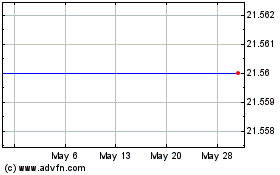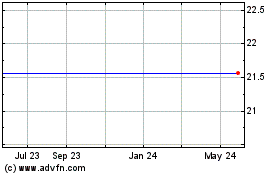Australia and New Zealand Banking Group Ltd. (ANZ) said Friday
it expects that bad debt charges have already peaked and are likely
to fall in coming years, paving the way for a return to profit
growth and increased dividends.
The group also said the wealth management market remains a key
focus for growth but Chief Executive Mike Smith declined to comment
on speculation it could consider a rival bid for AXA Asia Pacific
Holdings Ltd. (AXA.AU) or an offer for AMP Ltd. (AMP.AU).
"Given the resilience of the Australian economy, I believe
credit quality is now stabilizing and the bad debt cycle has
already peaked," Smith told shareholders at the group's annual
general meeting.
Chairman Charles Goode said that the level of provisions is
likely to fall in the current fiscal year 2010 and "more
significantly in 2011."
"Net profits should be higher," Goode said, adding that ANZ
anticipates a "strong" 2011 financial year.
The group recorded a net profit of A$2.94 billion for the year
to Sept. 30, 2009, a fall of 11% on year, after taking a A$3.0
billion provision for sour loans.
Earlier this week, Westpac Banking Corp. Chief Executive Gail
Kelly said she also expects that impairment charges for problem
loans have likely peaked.
Rising provisions for problem loans have been one of the only
major blemishes on the earnings of Australia's major banks, which
have emerged from the global economic downturn in relatively good
shape.
"As profits recover, shareholders can expect an increase in the
dividend rate," Goode told investors. Like its peers, ANZ reduced
its dividend in the latest financial year to help preserve capital
as a buffer against the global financial crisis.
But Goode ruled out returning capital to shareholders any time
soon, pointing to the group's continued plans for expansion in the
Asia Pacific region and the need to hold more capital under likely
new regulations.
The bank's Tier 1 capital ratio sits at 10%.
"Our capital position...means we are one of the strongest banks
in the world with the capacity to continue to take advantage of
opportunities to grow either organically or by acquisition," Smith
said.
ANZ Wants To Develop Wealth Management Operations
"Our core business is banking but we do have an interest in
developing our wealth management business," he told reporters after
the meeting.
But Smith wouldn't comment on speculation that Melbourne-based
ANZ has spoken with AXA Asia Pacific about a possible bid. National
Australia Bank Ltd. surprised the market Thursday with a A$13.3
billion offer for AXA Asia Pacific, trumping an earlier bid from
AMP, which had the backing of AXA Asia Pacific's major shareholder
AXA SA.
NAB's offer, which is conditional on a deal to sell AXA Asia
Pacific's Asian businesses to AXA SA, has the backing of AXA Asia
Pacific's independent directors.
There has been a land grab in the country's private wealth and
financial planning industries as banks build all-important
scale.
ANZ recently agreed to buy out partner ING's stake in their
Australian wealth management joint venture and there has also been
speculation that ANZ could target AMP.
"I don't want to comment on market rumors but quite clearly we
have a strategy to grow our wealth management but we really have to
bed down the ING acquisition first," Smith said.
The group said there's increasing evidence that the Australian
and New Zealand economies are recovering well and the Asian
economies are showing strong growth, which should help underpin
earnings.
"The financial markets are also recovering and the volume of
lending should pick up," Goode told shareholders.
Goode also anticipates steady to improved interest margins but
cautioned that increased competition is likely to restrain the
recovery in interest margins arising from re-pricing maturing
loans.
He also said there was some uncertainty about whether ANZ's
Global Markets business can continue to perform as well, while the
continued high level of doubtful debts in New Zealand and the
adverse impact of a higher Australian dollar may also prove
headwinds in the year ahead.
Smith also cautioned there is the potential for further rises in
Australia's official interest rates.
He expects Australia's Federal Government guarantee on wholesale
funding to be withdrawn in the near term, while the guarantee on
deposits is not needed.
Initial signs that the residential mortgage-backed securities
market is starting to thaw are also encouraging, Smith said.
Westpac said earlier Friday that it had priced A$2 billion of
RMBS, twice the size it originally planned, in the first issue by a
major lender in the Australian market since May, 2007.
"I think it is very good that we're seeing the reopening of
these markets. It shows confidence is returning and normality is
coming back to credit markets," he said.
He said Westpac's issue was priced at a higher level than banks
were used to before the crisis. Westpac's A$1.84 billion Class A
notes, rated AAA/Aaa with a weighted average life of 2.6 years,
were priced at 130 basis points over swap.
-By Lyndal McFarland, Dow Jones Newswires; 61-3-9292-2093;
lyndal.mcfarland@dowjones.com
Axa (NYSE:AXA)
Historical Stock Chart
From May 2024 to Jun 2024

Axa (NYSE:AXA)
Historical Stock Chart
From Jun 2023 to Jun 2024
